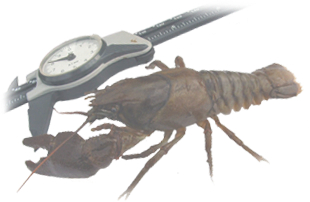What we do
The various ecological services provided by Dunelm Ecology Ltd are outlined below. These represent the most frequently requested forms of ecological work and it is worth contacting us if you require another service that is not listed below. All work undertaken by Dunelm Ecology Ltd is carried out to an extremely high standard by suitably qualified and experienced ecologists who are full members of the Institute of Ecology and Environmental Management (IEEM). We follow industry standard best practice guidelines and methodologies, and are able to offer all our services at competitive prices.
Services provided include:
 Scoping Surveys
Scoping Surveys
 Habitat Surveys
Habitat Surveys
 Protected Species Surveys
Protected Species Surveys
 Protected Species Licensing
Protected Species Licensing
 Ecological Impact Assessment
Ecological Impact Assessment
 Mitigation Design
Mitigation Design
 Site Supervision
Site Supervision
 Ecological Monitoring
Ecological Monitoring
 BREEAM Assessments
BREEAM Assessments
Scoping Surveys:
Scoping surveys are often used as a preliminary means of assessing if a site holds any ecological issues which could potentially affect the value of a site or constrain a proposed development. Depending on the results of this initial survey, further dedicated specialist surveys may be required.
Habitat Surveys:
Phase 1 Habitat Survey is the industry standard technique for classifying and mapping British habitats. It involves recording and mapping habitats within a site and investigating further those that are likely to be ecologically important. Phase 1 Habitat surveys can be 'extended' to include a general assessment for the presence or potential presence of protected species, providing an ecological baseline in the process.
Other forms of habitat survey undertaken by Dunelm Ecology Ltd include hedgerow surveys, River Habitat Surveys (RHS) and River Corridor Surveys (RCS).
Protected Species Surveys:
Protected species surveys are usually undertaken in support of planning applications and can include the use of several survey methods depending on the species involved and the type of proposal. We carry out surveys for a wide range of protected species including bats, badger, dormouse, water vole, otter, red squirrel, great crested newt, reptiles, white-clawed crayfish, barn owl and other birds. Owing to their legal protection, a licence is required to survey for some of these species. Our staff are appropriately licensed to survey for these species in England, Scotland and Wales.
Protected Species Licensing:
Some species such as bats, otter, dormouse and great crested newt are afforded the highest level of legal protection and are commonly referred to as European Protected Species (EPS). Operations affecting these species and their resting sites may require a derogation licence to be obtained before works can proceed. Dunelm Ecology Ltd has an excellent track record of successfully securing EPS licences on behalf of our clients.
In addition to EPS, we also hold licences for works affecting badger setts and water vole habitat, including the capture and translocation of voles.
Ecological Impact Assessment:
We are experienced in undertaking Ecological Impact Assessments (EcIA) to determine the impacts of proposals on species and habitats. Such assessments may be undertaken as part of relatively simple small scale projects or alternatively as part of large scale Environmental Impact Assessments (EIA) involving numerous environmental disciplines. Our staff are fully conversant in the use of both IEEM and WebTAG impact assessment methodologies.
Mitigation Design:
We can design mitigation measures for a wide range of species and habitats. Such measures are most often required as part of European Protected Species licences or to fulfil planning conditions. We are adept at working closely with our clients to ensure that mitigation proposals are cost effective and amicable to all parties concerned without detracting from the nature conservation value of the site.
Site Supervision:
We provide on-site supervision and assistance with a range of work, including the removal and rescue of plant and animal species from development sites, installation of mitigation measures and site clearance. Where necessary, we can provide full-time on-site management and supervision services through the presence of an Ecological Clerk of Works (ECoW).
Ecological Monitoring:
Dunelm Ecology Ltd undertakes post development monitoring for all of the species and habitats mentioned above. Monitoring is often required to fulfil the conditions of European Protected Species licences and planning consents, and helps to gauge the efficacy of mitigation measures. We undertake both short and long term monitoring programmes.
BREEAM:
BREEAM is the standardised and nationally recognised Environmental Assessment Method and aims to reduce the environmental impacts of development. This is achieved by awarding credits to those developments that result in benefits to the environment. The most recognised version is the code for sustainable homes although Dunelm Ecology Ltd. is conversant in all forms of BREEAM assessment.
© Dunelm Ecology Ltd 2026.
